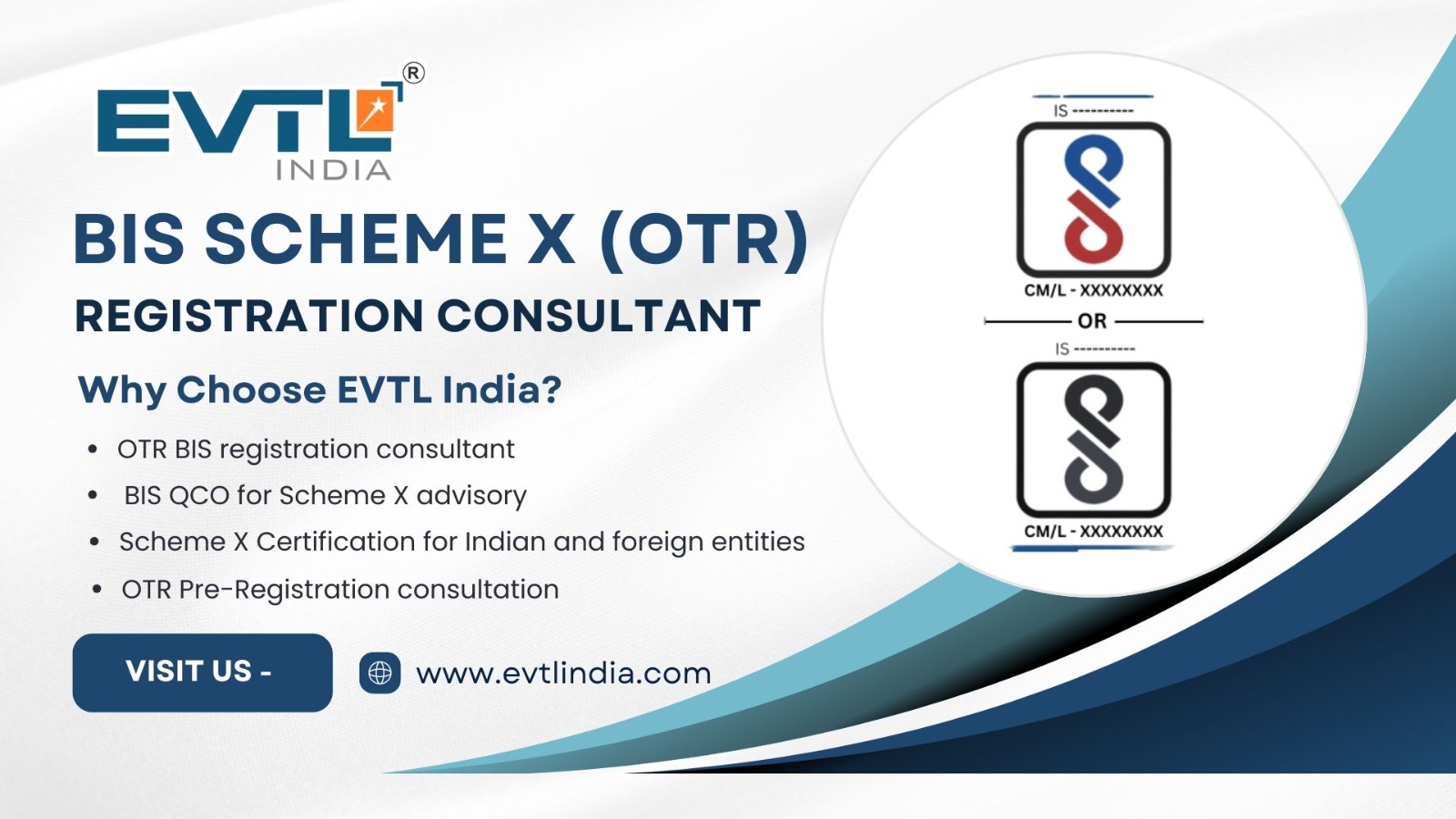The Indian compliance ecosystem is becoming sharper, faster, and more regulated — especially with the government’s introduction of the OTR Scheme under the Bureau of Indian Standards (BIS). If you are a manufacturer or importer looking to launch a product in India, the term BIS OTR registration will soon become very familiar to you — and for good reason.
Unlike traditional post-import certifications, the OTR (On-Time Registration) system is designed to bring order before entry. Think of it as clearing customs even before your product reaches the shore.
🔍 What Is OTR and Why Does It Exist?
The OTR framework was rolled out to address a long-standing gap: the delay between a product's arrival and its compliance clearance. Products without certification used to pile up in warehouses or ports, causing massive delays, penalties, or rejections. To fix this, BIS introduced a mandatory OTR pre-registration BIS process, ensuring that every product entering the Indian market has already passed preliminary compliance checks.
The philosophy behind OTR is simple: Certify first, import later.
This pro-active step increases safety, reduces regulatory friction, and helps manufacturers plan product launches without fear of last-minute hold-ups.
🏭 Who Needs BIS OTR Registration?
Both foreign and domestic manufacturers of items covered under Quality Control Orders (QCOs) need to comply with this pre-registration process. This includes:
-
Electronics & IT Goods
-
Automotive parts
-
Chemicals
-
Industrial tools
-
Domestic appliances
Whether you're a large corporation or a niche manufacturer, this applies to you once your product falls under the mandatory QCO list.
📑 The Process Simplified
Let’s break it down:
-
Identify Applicable QCO: Check if your product is covered under any recent BIS QCO notification.
-
Documentation Readiness: Get your factory documents, product test reports, and legal paperwork in place.
-
Apply for OTR: Submit your product for BIS OTR registration via the designated BIS portal.
-
Await Approval: Once reviewed and approved, you’ll receive an OTR number which you must mention in your import documentation.
-
Full BIS License Application: After the product lands, you must complete the full BIS certification process.
If you miss OTR, your product can’t enter Indian markets — simple as that.
📌 Why BIS OTR QCO Matters for Your Product Strategy
The newly implemented BIS OTR QCO isn’t just a regulatory move — it's a strategic shift that demands proactive planning. Here’s why it matters:
-
Faster Market Entry: Since approvals happen before the shipment, it eliminates idle port time.
-
Higher Brand Trust: You’re telling consumers, “We meet India’s quality standards before even arriving.”
-
Legal Shielding: With OTR registration in place, you avoid legal or compliance heat from regulators.
In essence, OTR isn't a hurdle — it's an advantage if handled right.
🧠 Mistakes to Avoid
Here are common pitfalls most businesses make when dealing with OTR:
-
Assuming OTR is Optional: It isn’t. It’s a regulatory requirement.
-
Using Old Test Reports: BIS only accepts lab reports from recognized and recent sources.
-
Waiting Too Long: OTR registration must be started well before your product is ready to ship.
-
Going Solo: Without professional help, many businesses end up stuck in cycles of re-application.
🤝 Why You Need a BIS OTR Registration Consultant
Navigating BIS rules isn’t child’s play. A trusted BIS OTR Registration Consultant like EVTL India can streamline your process, reduce paperwork errors, and help you complete OTR quickly — without wasting weeks or months in trial and error.
The consultant ensures:
-
Accurate documentation
-
Proper product classification under QCO
-
BIS portal navigation
-
Query handling
-
Smooth transition from OTR to full certification
For most businesses, this support isn’t optional — it’s a necessity to avoid delays or financial penalties.
📊 What Happens If You Skip OTR?
If you attempt to ship a product to India without registering under the OTR Scheme, here’s what can happen:
-
Your product may be denied clearance at the port
-
You may face heavy demurrage or penalty charges
-
You could suffer brand reputation damage
-
BIS may even ban further imports of your product line
So, skipping the OTR is more expensive than doing it right.
📅 When to Start?
Now. Start the registration process at least 6–8 weeks before your planned product shipment. With the BIS system becoming more digitized but also stricter, early planning ensures a smooth journey.
Conclusion
EVTL India is one of the leading BIS Consultant in India, helping manufacturers obtain their BIS licences hassle-free. Gone are the days of post-arrival certifications. The BIS OTR registration model is not just a new rule — it’s a smarter, cleaner, and more efficient way to ensure only compliant, safe, and quality-tested products make it to Indian shelves.
If you are planning to launch a product soon, consider engaging a professional and following the OTR path early. It’s no longer just a compliance step — it’s your ticket to timely market success.


